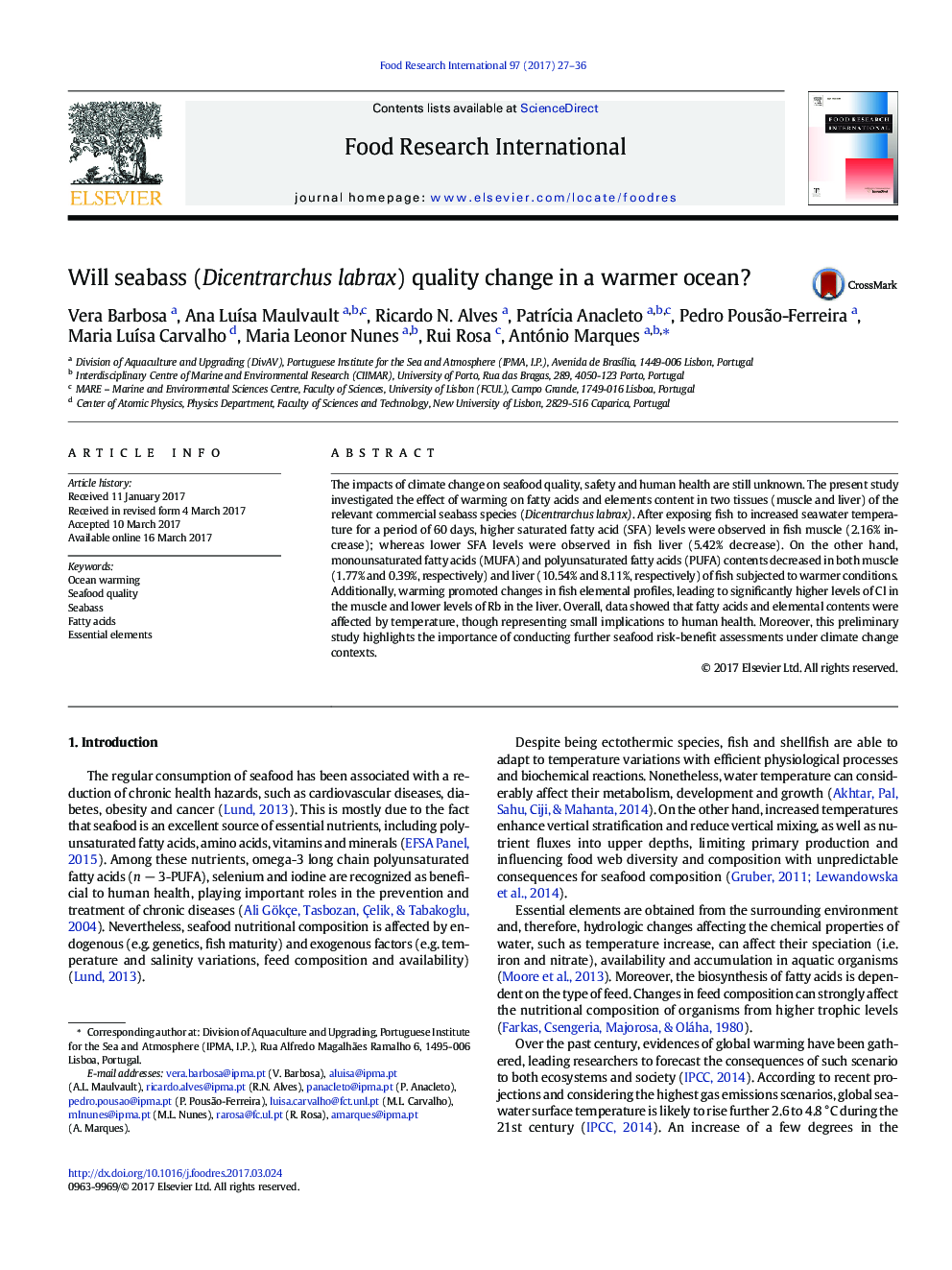| Article ID | Journal | Published Year | Pages | File Type |
|---|---|---|---|---|
| 5768204 | Food Research International | 2017 | 10 Pages |
â¢SFA increased in muscle at higher temperatures.â¢MUFA and PUFA decreased in muscle and liver with warming conditions.â¢Cl and Rb levels decreased in muscle and liver, respectively, at higher temperatures.â¢Warming seems to affect seabass nutritional quality.
The impacts of climate change on seafood quality, safety and human health are still unknown. The present study investigated the effect of warming on fatty acids and elements content in two tissues (muscle and liver) of the relevant commercial seabass species (Dicentrarchus labrax). After exposing fish to increased seawater temperature for a period of 60Â days, higher saturated fatty acid (SFA) levels were observed in fish muscle (2.16% increase); whereas lower SFA levels were observed in fish liver (5.42% decrease). On the other hand, monounsaturated fatty acids (MUFA) and polyunsaturated fatty acids (PUFA) contents decreased in both muscle (1.77% and 0.39%, respectively) and liver (10.54% and 8.11%, respectively) of fish subjected to warmer conditions. Additionally, warming promoted changes in fish elemental profiles, leading to significantly higher levels of Cl in the muscle and lower levels of Rb in the liver. Overall, data showed that fatty acids and elemental contents were affected by temperature, though representing small implications to human health. Moreover, this preliminary study highlights the importance of conducting further seafood risk-benefit assessments under climate change contexts.
Graphical abstractDownload high-res image (233KB)Download full-size image
